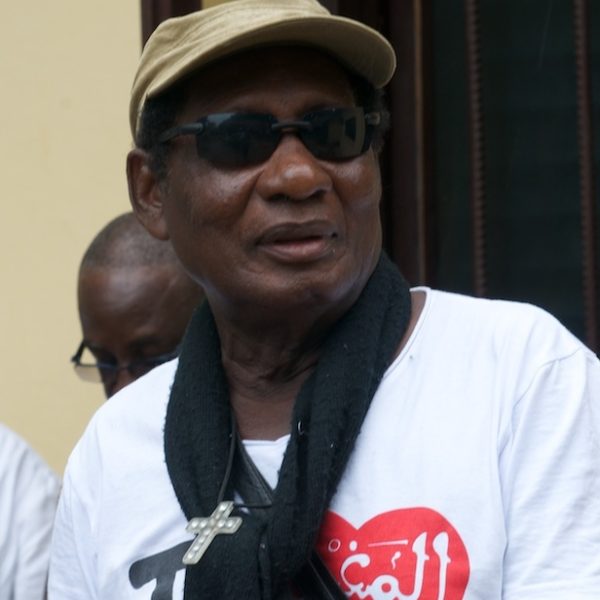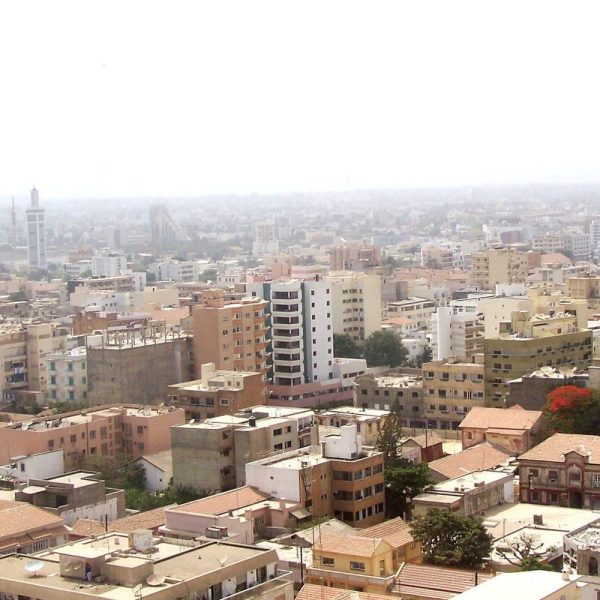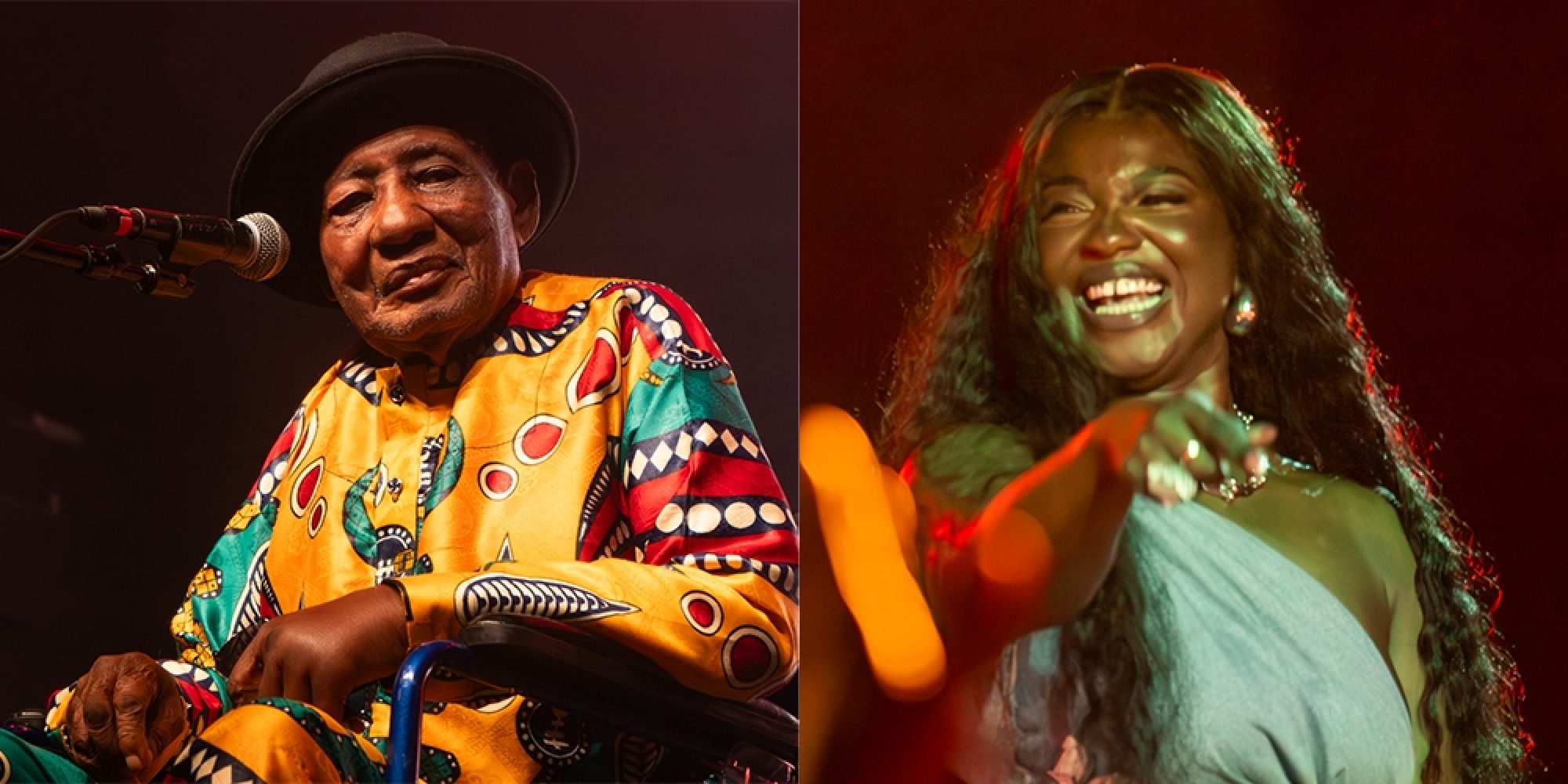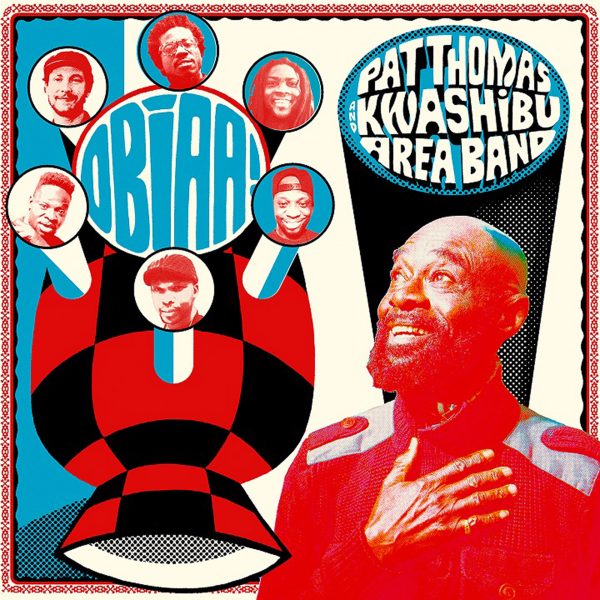On April 19th and 20th in New York City, the pasts and futures of Senegal and Ghana were on full and dramatic display. Senegalese independence was celebrated at The Palladium with current stars Amadeus and Mia Guisse rousing a crowd of thousands. Meanwhile, at Webster Hall, two giants of Ghanaian highlife and Afro-funk, Ebo Taylor and Pat Thomas made a rare performance backed by Taylor’s Family Band. Both shows were well attended and spectacular, but they tell contrasting stories about African music in New York.
Photos by Banning Eyre
Ebo Taylor is nearly 90 years old. When Afropop Worldwide profiled him in Ghana in 2013, for the program Ebo Taylor and the Pioneers of Afro-Funk, he was still in his prime, sprightly and game with a twinkle in his eye and endless stories to tell. Twelve years later, he’s a quiet octogenarian, confined to a wheelchair and with little to say, but, remarkably, he is still quite up to roaring out vocals when wheeled onto the stage in front of the Taylor Family Band, led by Harry Taylor and two other Taylor sons.
Pat Thomas, on the other hand, is going strong. A longtime friend and collaborator with Taylor, he made the perfect onstage companion for this show. They worked together most recently on Thomas’s 2015 album Pat Thomas and the Kwashibu Area Band. This concert, billed appropriately as Ebo Taylor’s Farewell Tour, was co-presented by Jazz is Dead, the record label and live music project based in Los Angeles, founded by Adrian Young and Ali Shaheed Muhammed, a co-founder of A Tribe Called Quest. The label’s 22nd release features Taylor.
Sean Barlow and I arrived early to greet “Uncle Ebo,” a serene, smiling presence in the Webster Hall green room. He lit up when we showed him the short film we made of him performing konkoma music with his sons and other musicians by the beach in his hometown, Salt Pond, back in 2013.
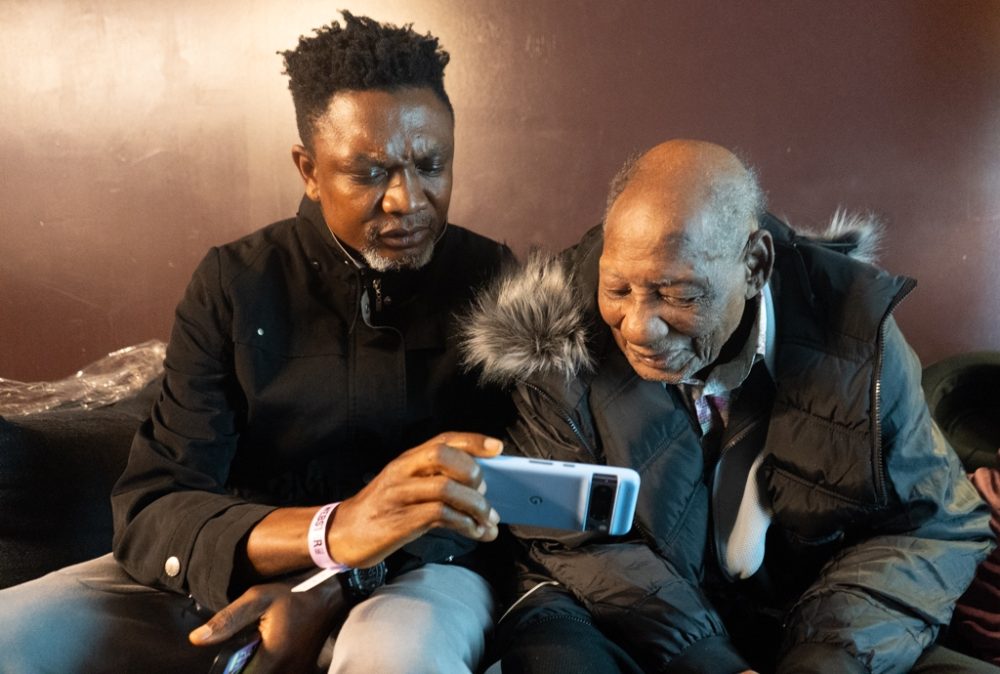
The show itself began with Harry Taylor leading the band through a set of excellent Afro-funk numbers, quite worthy of the patriarch. When Ebo joined, he sang the powerhouse number, “Aysema,” and a few others. Then Thomas joined and the two performed a song Taylor had written for Thomas, an emotional moment that thrilled the crowd. Thomas took the helm from there, and showed himself as the exemplary Ghanaian showman highlife fans have loved for decades.
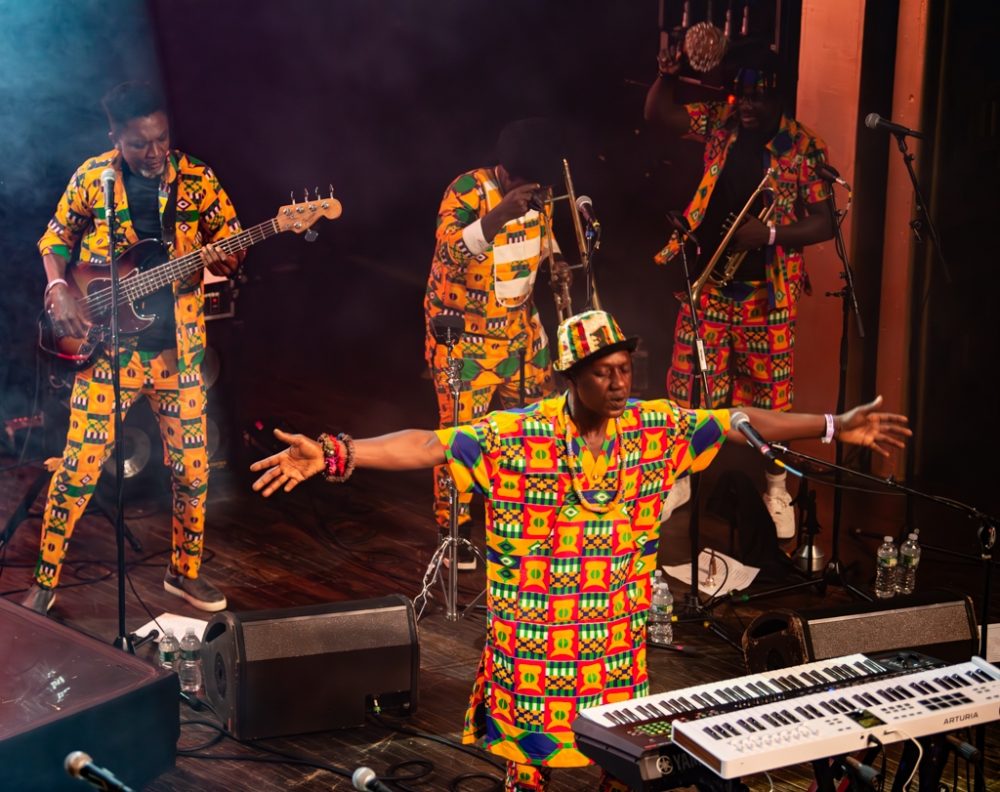
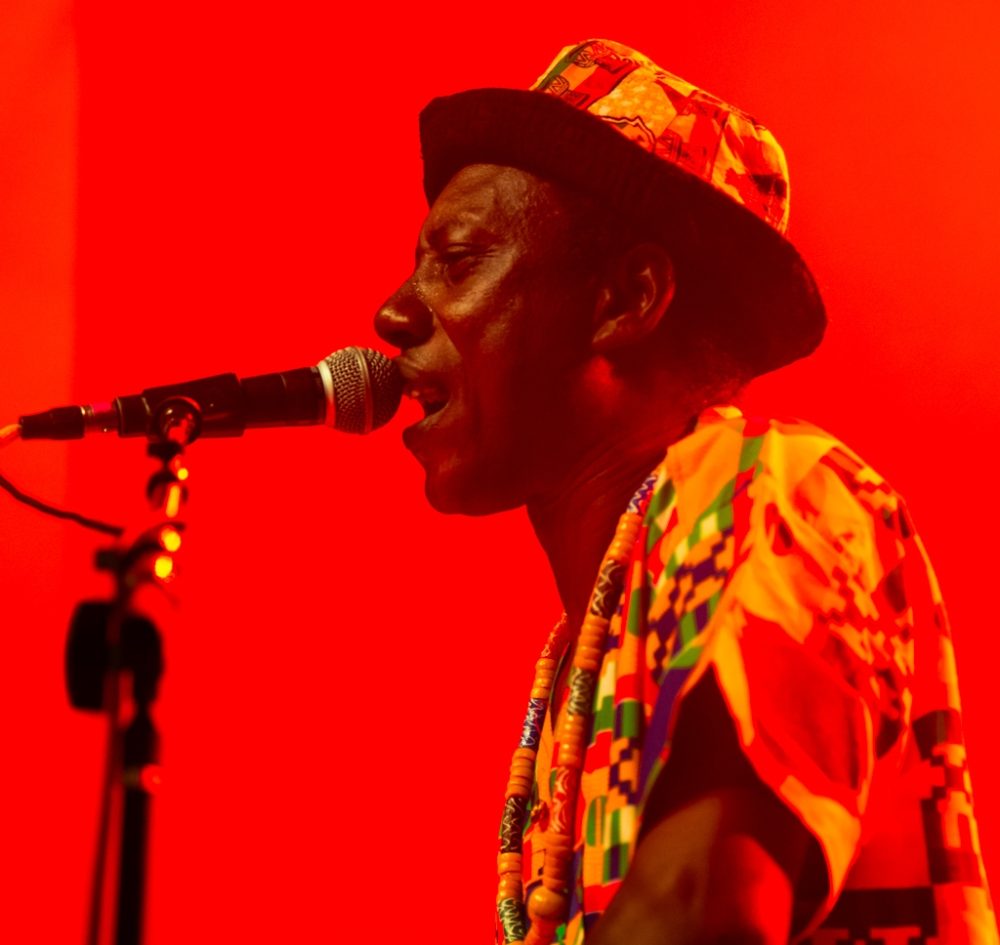
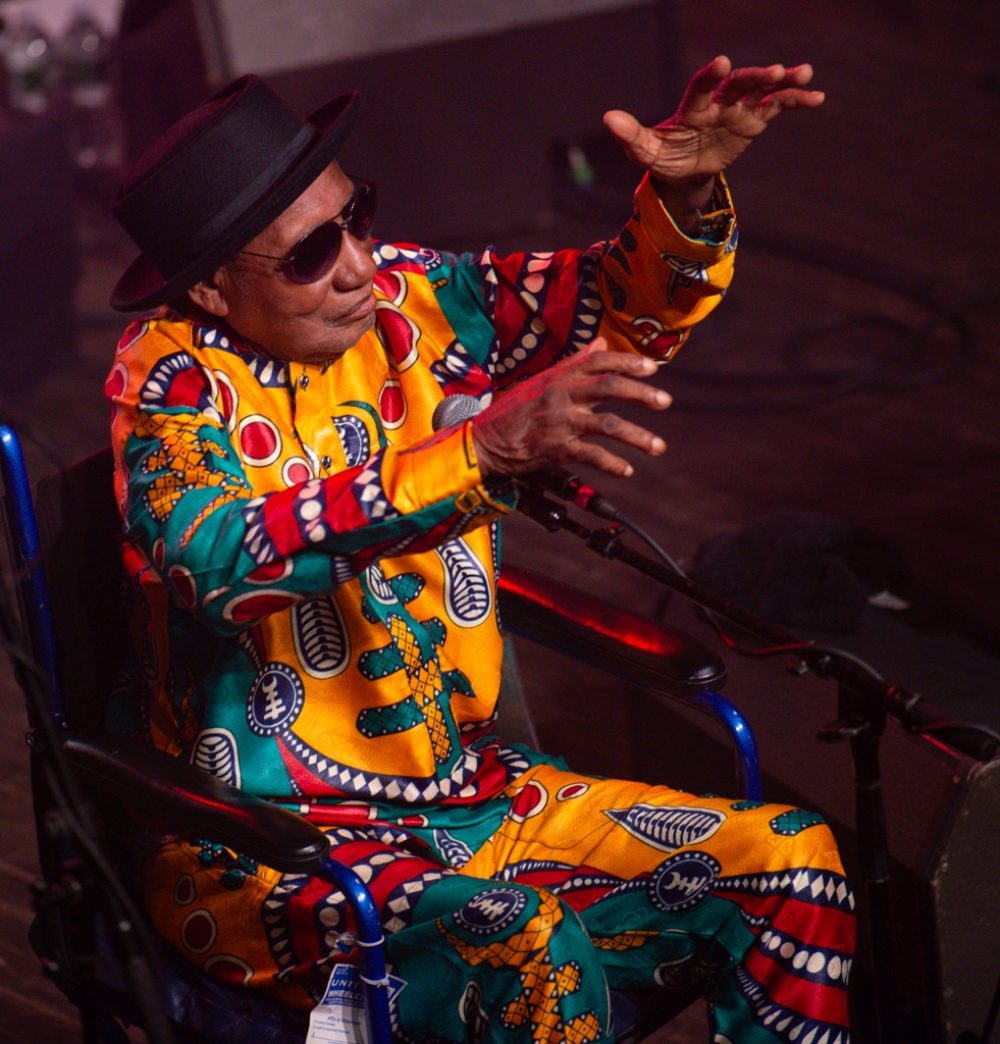
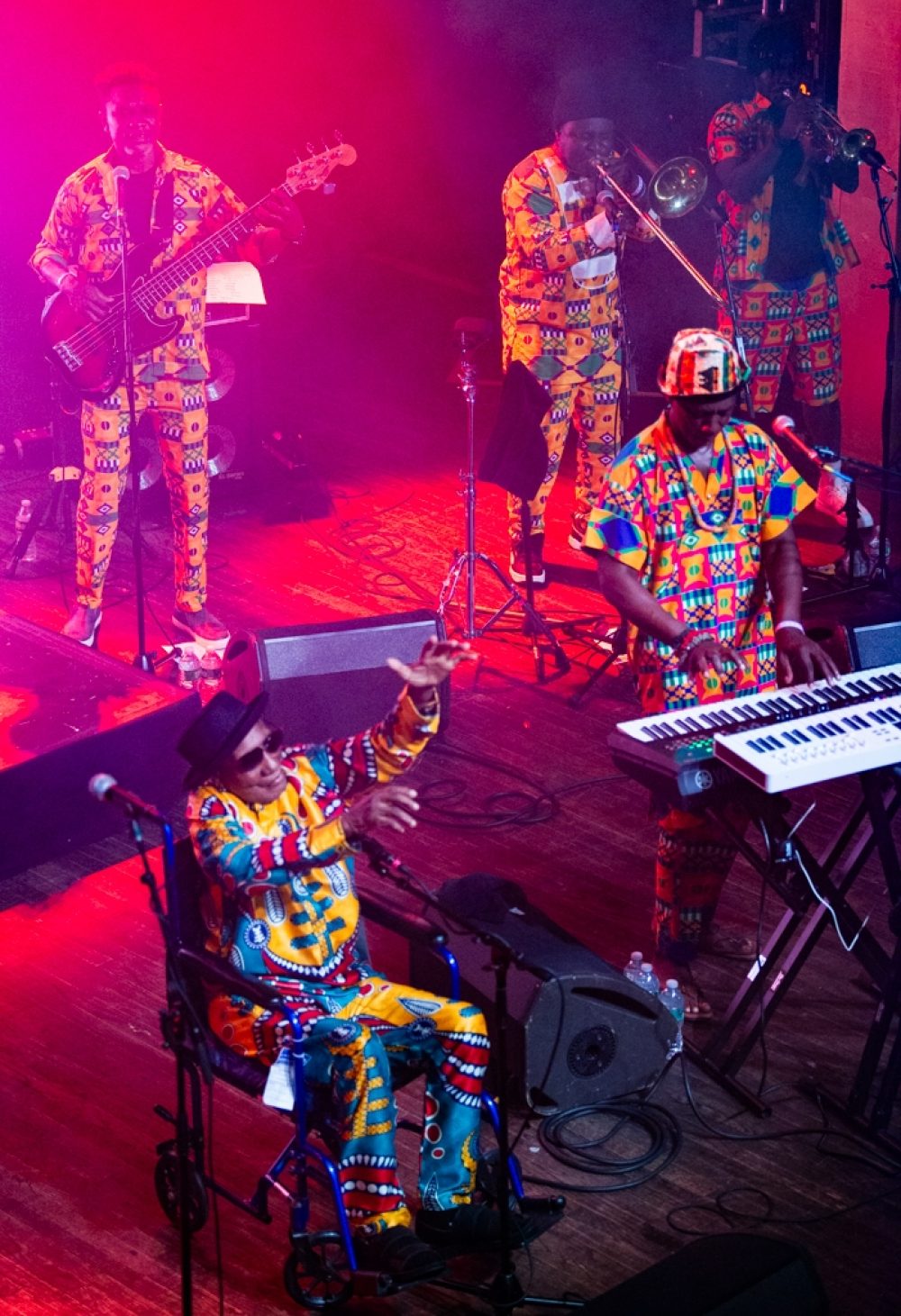
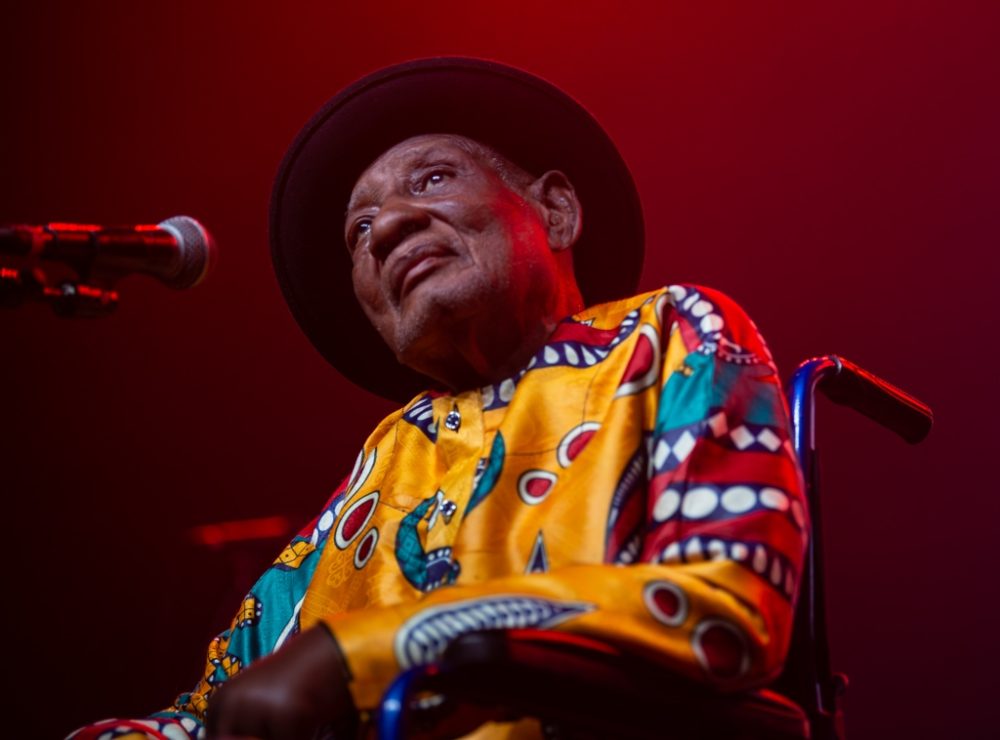
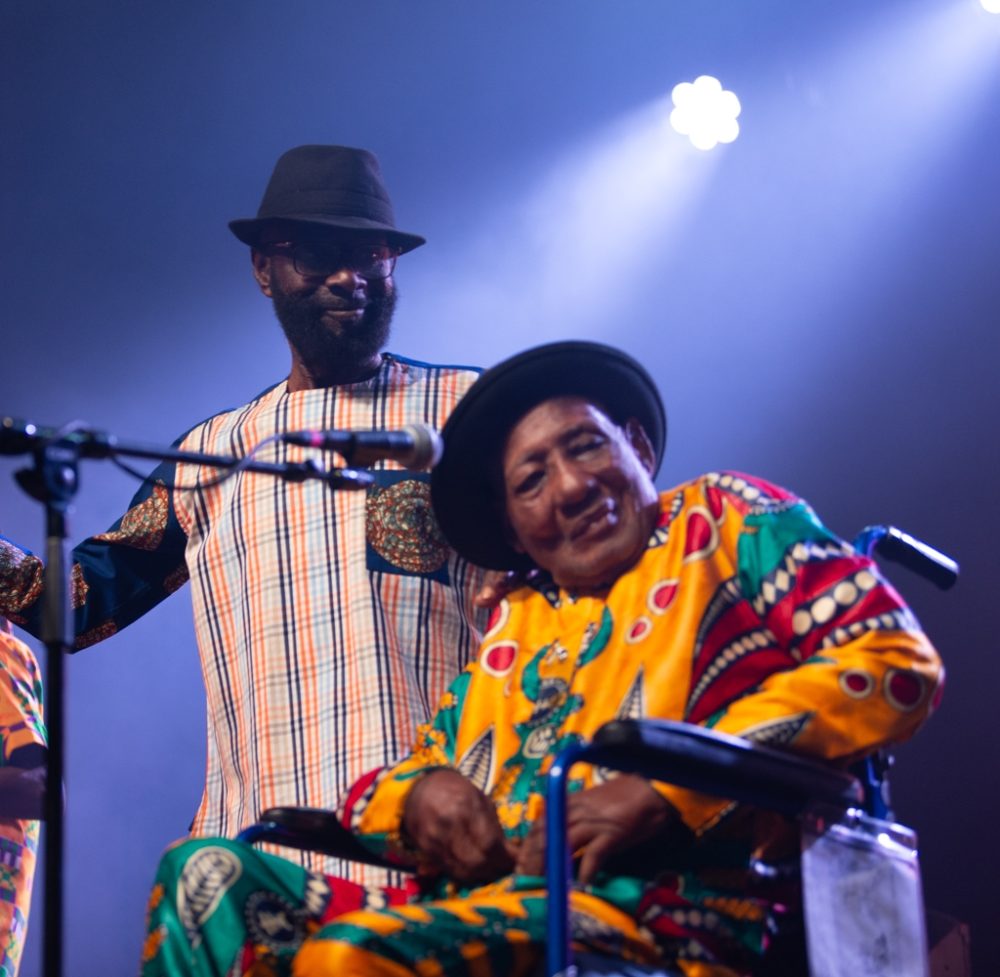
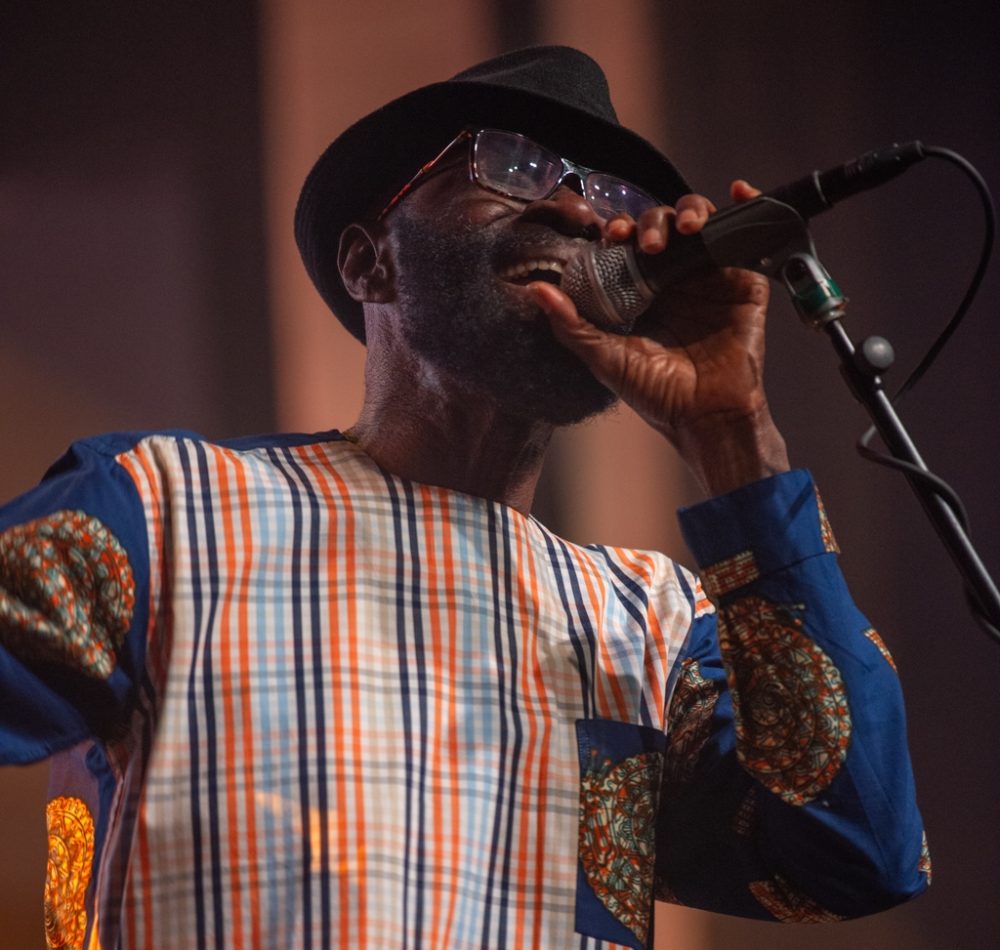
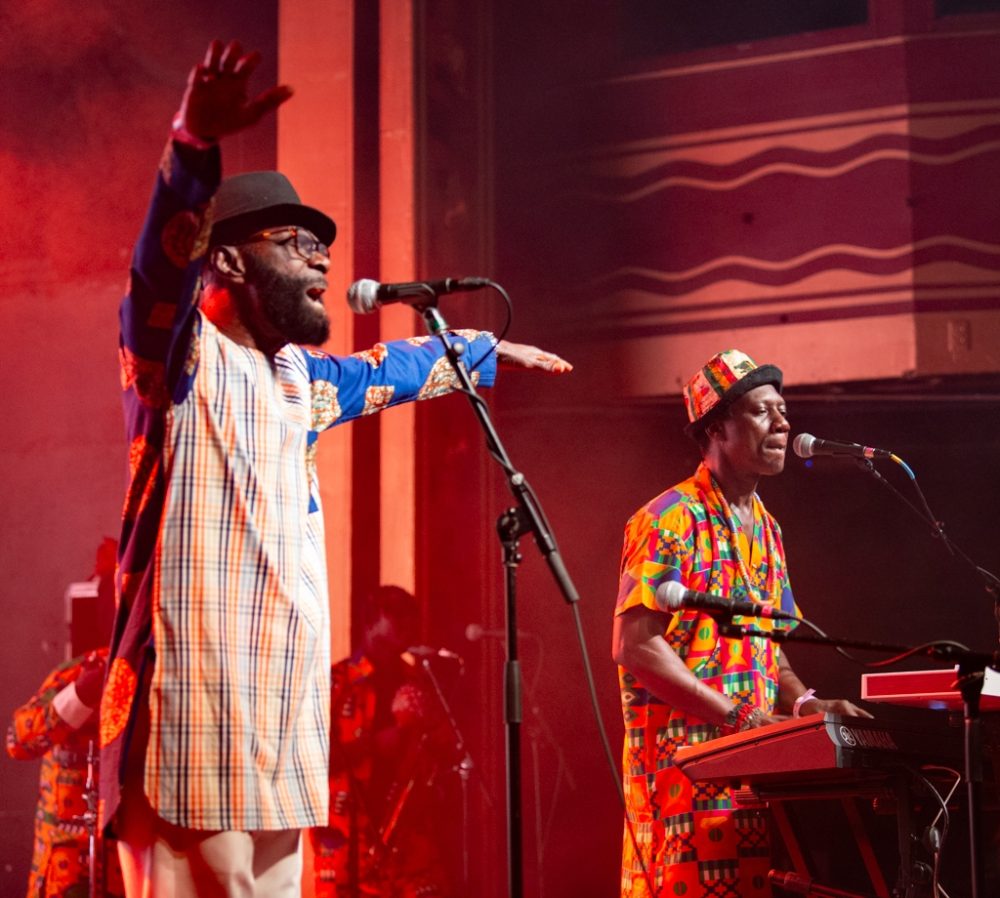
In all, this was a spectacular show. We will not see Uncle Ebo on our stages anymore after this tour, but his Family Band is carrying the torch admirably and are sure to be back.
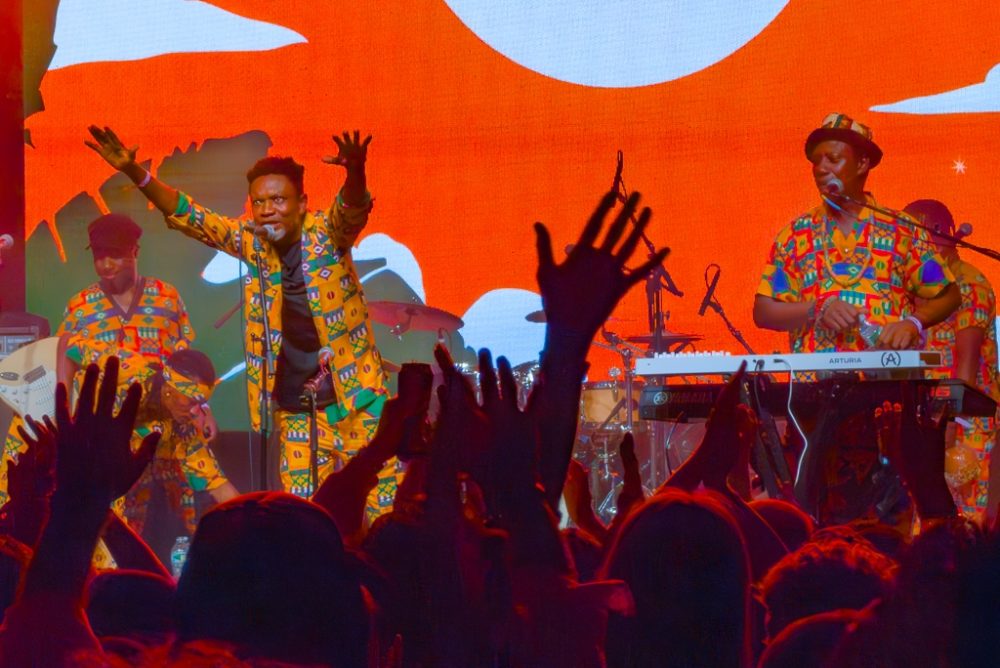
The action at the Palladium began around midnight. The featured artists, Amadeus and Mia Guisse, were not previously on Afropop’s radar, but this crowd knew them well, anticipating songs by their intros and singing along with gusto. Both artists were backed by the same live band. The music was clearly mbalax-based, nice to hear from such young artists. There were strains of soul and R&B, but the rhythm section kept the distinctive sound of Dakar front and center. Guisse was particularly effective with her writhing team of dancers.
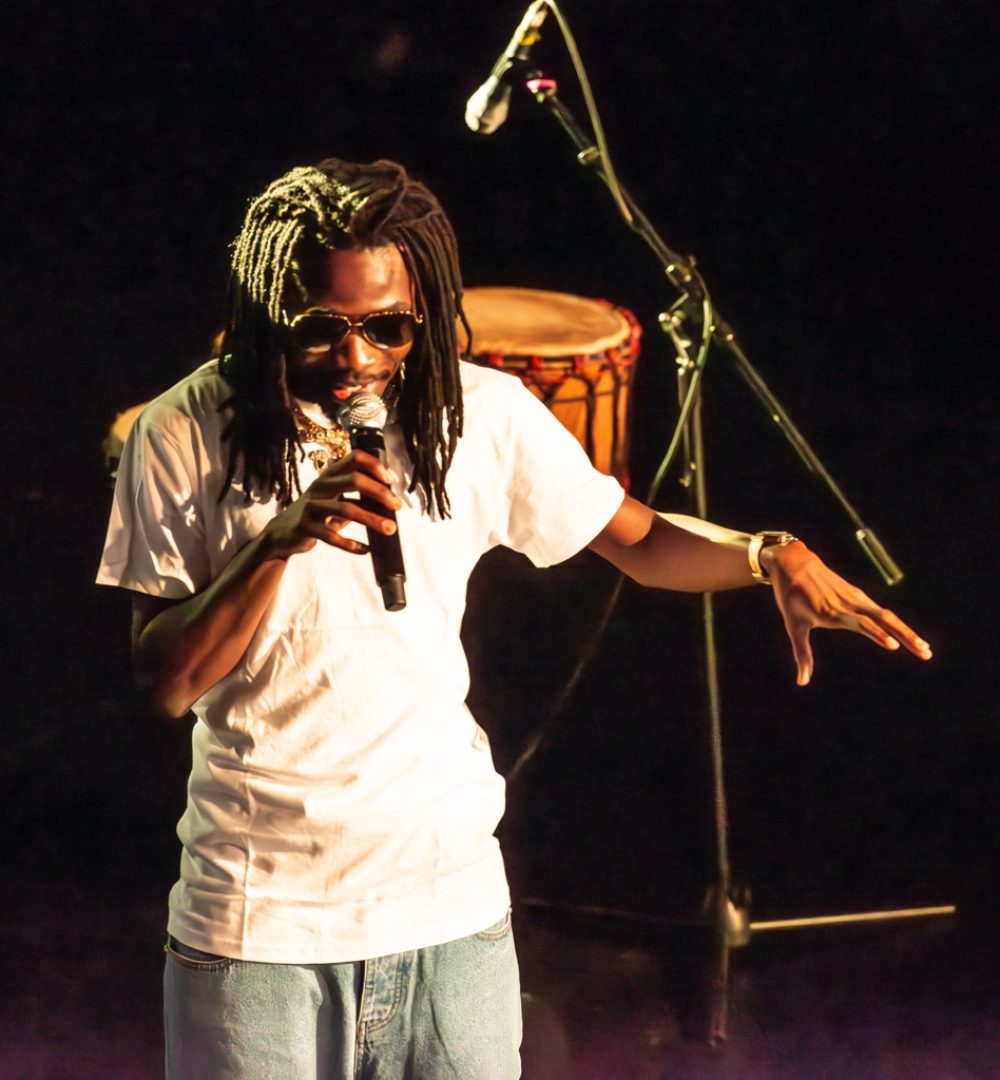
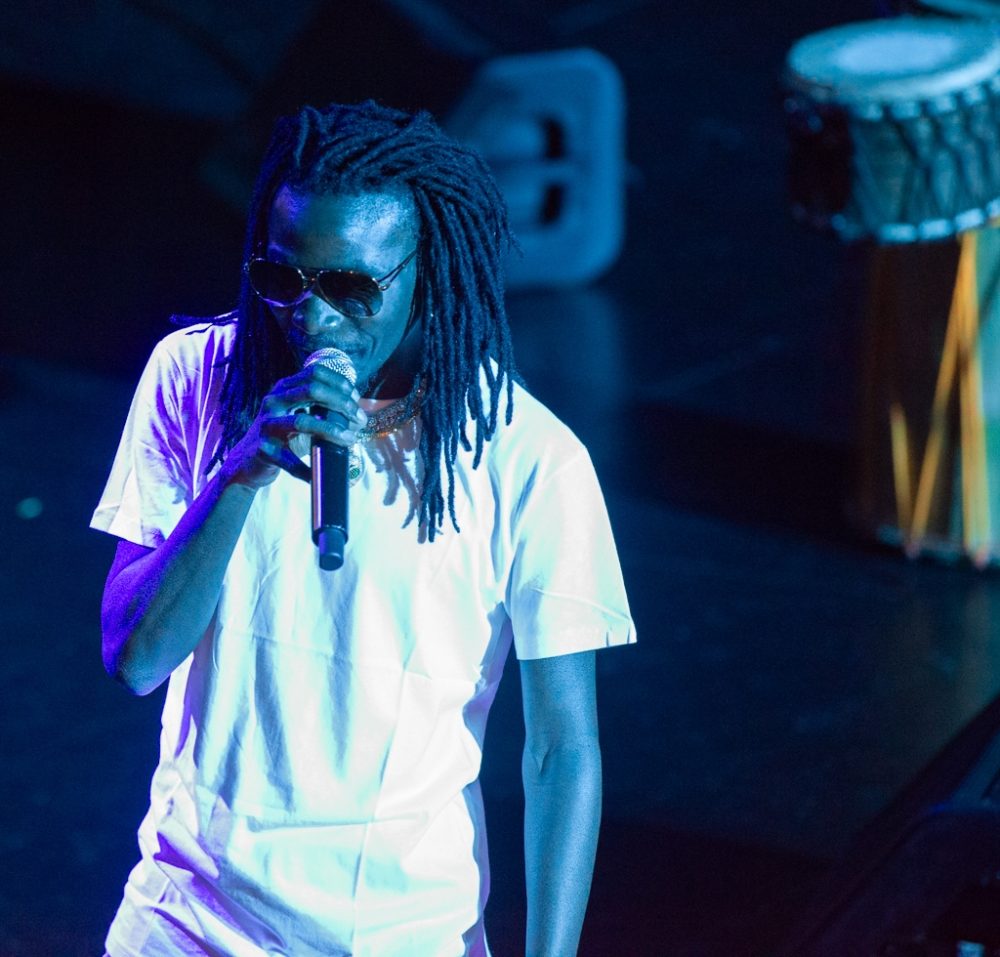
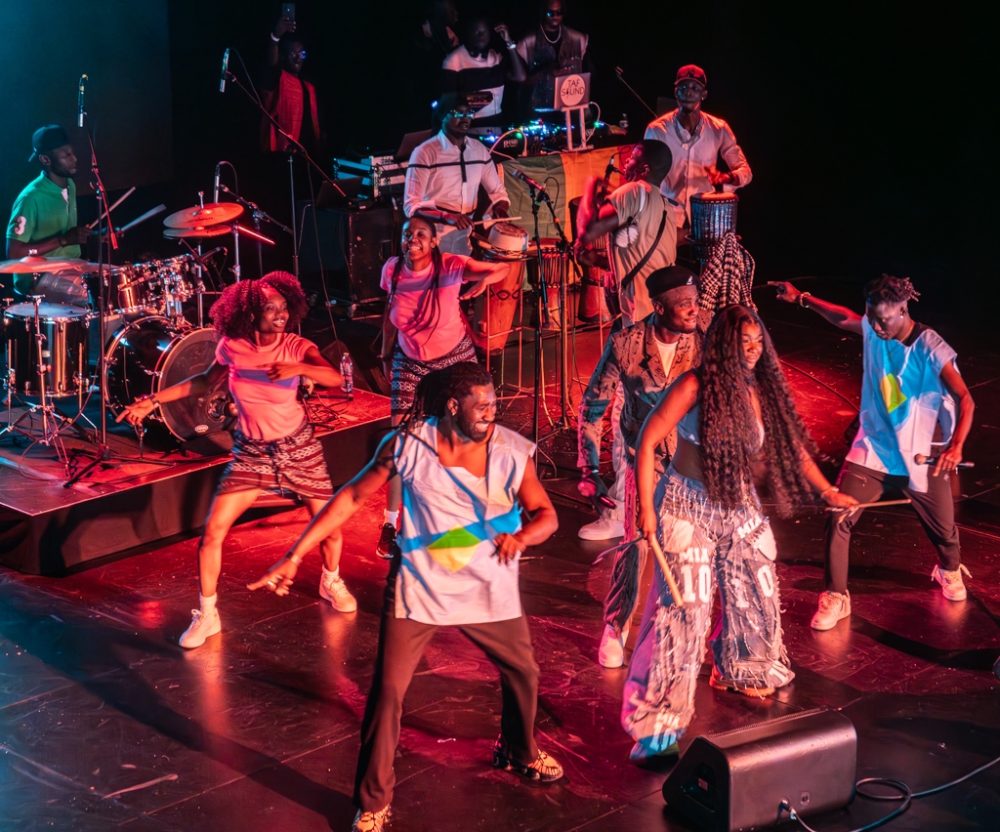
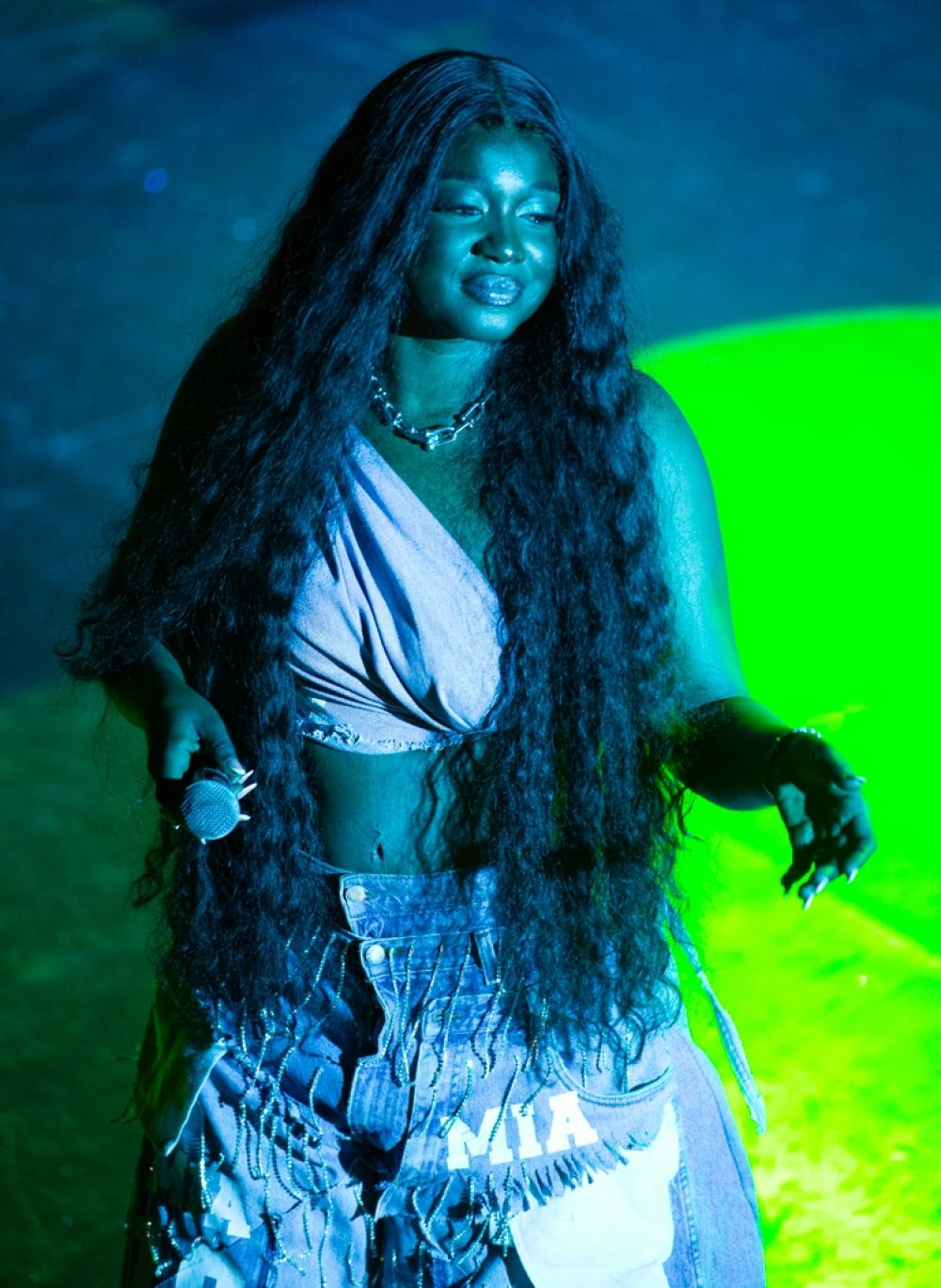
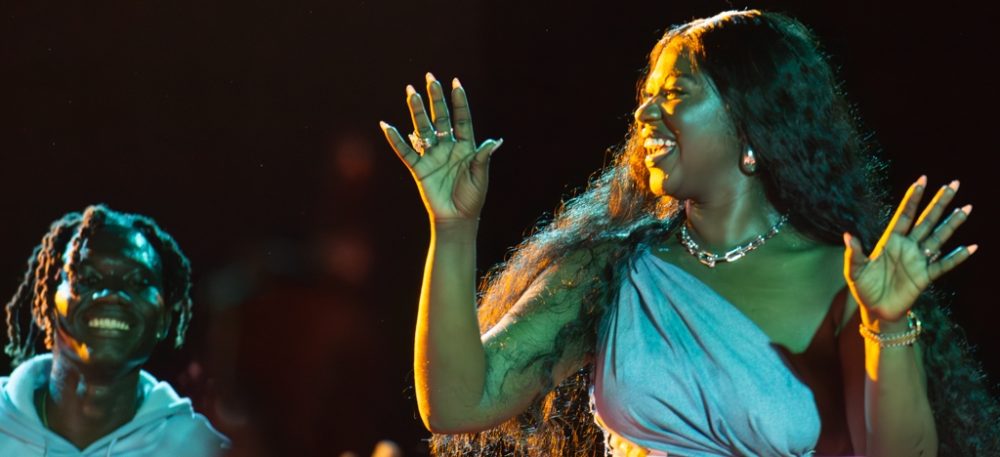
One striking thing about these two shows was who turned up to see them. Here was the Palladium crowd:
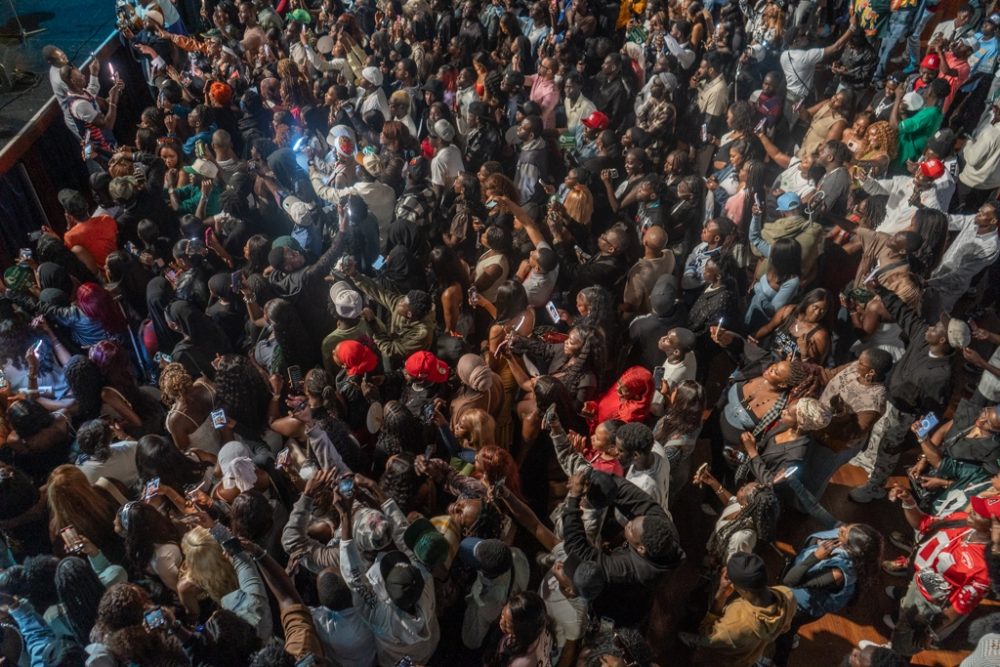
And here was the crowd at Webster Hall:
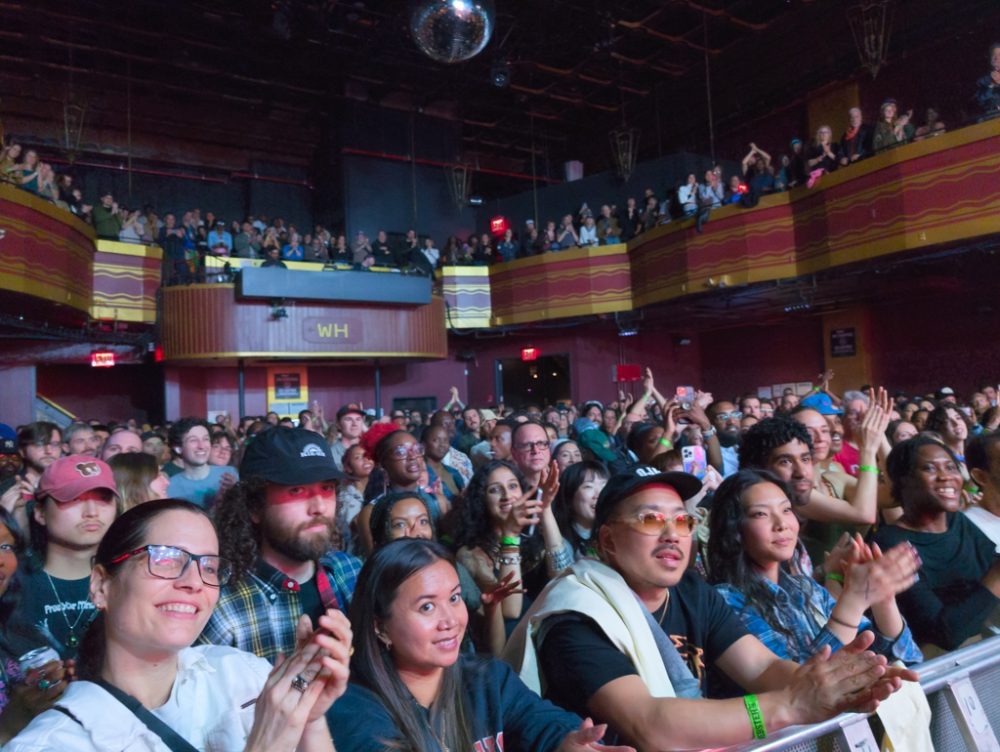
On the one hand, this contrast testifies to the strength and solidarity of New York’s Senegalese community, as opposed to its smaller Ghanaian population. It also testifies to the power of Ebo Taylor’s and Pat Thomas’s crossover reputation and the marketing savvy of Jazz is Dead. We should all be so lucky as to live in a city where such back-to-back concerts can occur and be so fully and enthusiastically attended. God bless New York City!
Related Audio Programs
